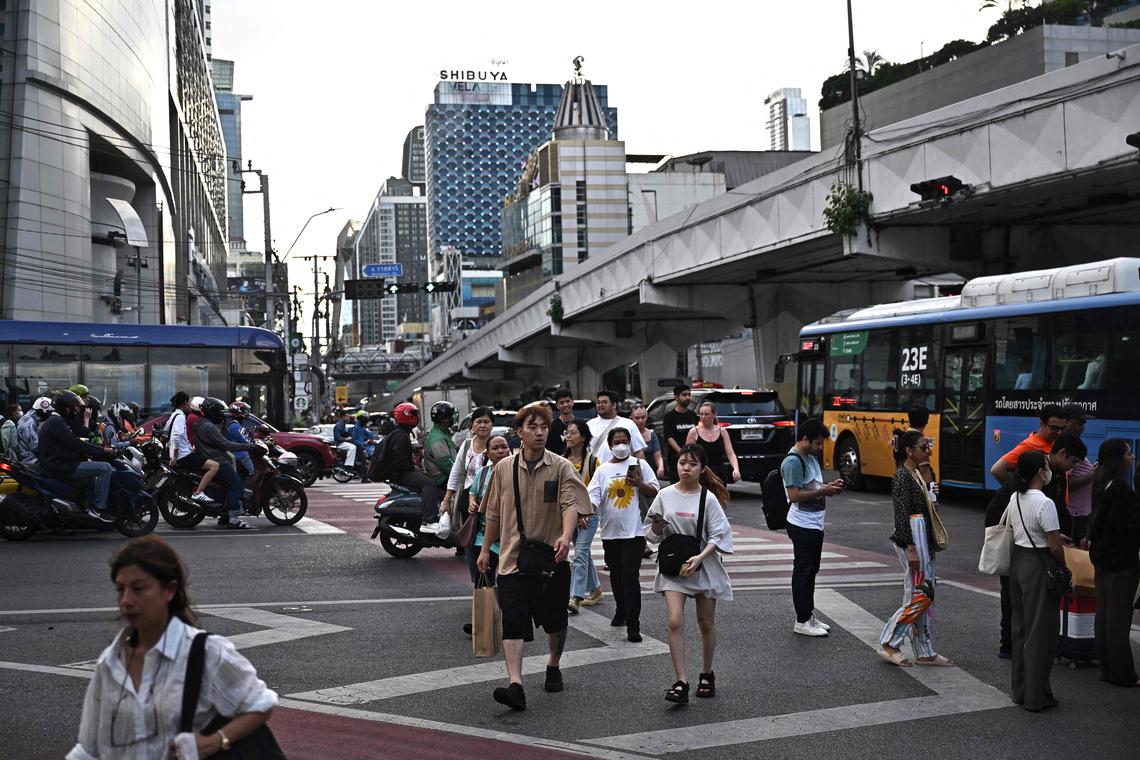Thailand is facing a pressing public health crisis, with a new report highlighting a significant surge in mental health issues and a troubling decline in the nation’s birth rate.
The Thai Health Report 2025, launched by the Thai Health Promotion Foundation (ThaiHealth) and Mahidol University on July 17, reveals stark figures that serve as a critical warning for society.
The report’s findings on mental health are particularly concerning. It found that 13.4 million Thais have experienced mental health problems or psychiatric disorders.
Alarmingly, the suicide rate in Thailand has continuously increased over the past decade, with a notable rise among young people aged between 15 and 29.
This demographic faces heightened stress, anxiety, depression and a high risk of suicide, often attributed to academic pressures, the pervasive “fear of missing out” from social media, domestic violence and intense societal expectations.
In a poignant finding on positive mental health, the pre-elderly group, those aged 45 to 59, reported the lowest levels of happiness, reflecting emotional vulnerability during this transitional life stage.
While one-third of Thais possess high mental health literacy, misconceptions persist, such as the stigmatising view of suicide as a sign of weakness.
Beyond mental well-being, the report’s special feature, Falling Birth Rates: How To Adjust And Cope, details that Thailand’s birth rate has reached an all-time low.
This demographic shift is primarily driven by socio-economic changes: the evolving roles of women, escalating living costs, a greater emphasis on work-life balance and a younger generation’s desire for independence, often viewing children as an overwhelming burden.
“Even with diverse pro-birth measures in other countries – from childcare support and extended maternity leave to financial subsidies – they have largely failed to increase the desire for children,” noted Associate Professor Bhubate Samutachak of Mahidol University.
This underscores an urgent need for Thai society to adapt and prepare for long-term consequences, focusing on quality of life for existing children, creating a supportive environment for youth, attracting skilled migrants, redefining “elderly”, extending retirement age and planning for a hyper-aged society.
The report also identifies other public health concerns, including e-cigarettes, medical cannabis and the impact of casinos.
Dr Pongthep Wongwatcharapaiboon, manager of ThaiHealth, stressed the report’s importance in providing crucial health data and fostering academic exchange.
ThaiHealth hopes that government agencies will use the report to shape policies, track progress and drive health promotion efforts that align with the current health realities facing Thais.
The findings are intended to kick-start social communication that leads to impactful public policies, ultimately fostering improved well-being for all citizens. THE NATION/ASIA NEWS NETWORK
National helpline: 1771 (24 hours) / 6669-1771 (via WhatsApp)
Samaritans of Singapore: 1-767 (24 hours) / 9151-1767 (24 hours CareText via WhatsApp)
Singapore Association for Mental Health: 1800-283-7019
Silver Ribbon Singapore: 6386-1928
Chat, Centre of Excellence for Youth Mental Health: 6493-6500/1
Women’s Helpline (Aware): 1800-777-5555 (weekdays, 10am to 6pm)
The Seniors Helpline: 1800-555-5555 (weekdays, 9am to 5pm)
Touchline (Counselling): 1800-377-2252
Touch Care Line (for caregivers): 6804-6555
Counselling and Care Centre: 6536-6366
We Care Community Services: 3165-8017
Shan You Counselling Centre: 6741-9293
Clarity Singapore: 6757-7990
mindline.sg/fsmh
eC2.sg
tinklefriend.sg
chat.mentalhealth.sg
carey.carecorner.org.sg (for those aged 13 to 25)
limitless.sg/talk (for those aged 12 to 25)
shanyou.org.sg
ThailandMental healthPopulation/Demographics

